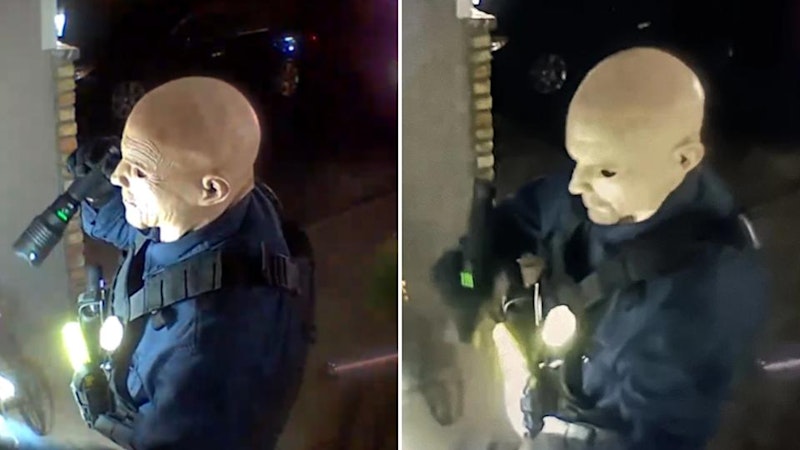This may strike you as naive, but then again it’s hard to imagine other ways to make it through: we’re going to have to find a way to repudiate violence, or we’ll be consumed and annihilated by it. That’s a call familiar from great pacifists, particularly those who emerged during the Cold War, with its nuclear standoffs, brushfire conflagrations, and threats of global destruction.
It’s time, said figures such as Dorothy Day, Thomas Merton, and Philip Berrigan, to choose between peace and extinction. By the 1960s, they were extremely concerned by the contest of nuclear-armed and notably combative opponents, who were squaring off in conflicts all over the globe. But they were also troubled that domestic politics was breaking down into firebombings and assassinations, including some perpetrated by people on the left, people that these figures otherwise agreed with.
We’ve arrived at a moment similar in some ways to 1967-'68: squared off against Russia as it and even we flirt with the possibility of a tactical nuclear exchange; descending into violent demonstrations and riots even as the government exalts its military, as in Saturday's parade in DC; a series of political assassinations. The New York Times summarizes the last three months in US political violence like this: "A man set fire to the Pennsylvania governor’s residence while Mr. Shapiro and his family were asleep inside; another man gunned down a pair of workers from the Israeli Embassy outside an event in Washington; protesters calling for the release of Israeli hostages in Boulder, Colo., were set on fire; and the Republican Party headquarters in New Mexico and a Tesla dealership near Albuquerque were firebombed."
Not occurring in the last three months, but in some ways setting the tone, was the action of Luigi Mangione, alleged killer of health insurance CEO Brian Thompson. The enthusiastic reception of that killing among a lot of younger people surprised and continues to surprise me. And even more widespread than the enthusiasm was a sort of resigned acknowledgment: well, of course. That’s just the sort of thing that’s bound to happen in a system like ours. Everyone seemed to take Luigi as a sign of the times in 2024. He’s even more emblematic of 2025, a kind of prophet of an apparent new age of killing.
Meanwhile, one can hardly keep up with the coverage of the violence, as Ukraine and Russia unleash unprecedented drone assaults on one another; as Israel assassinates Iranian military leaders and levels the last few buildings in Gaza and as Iran fires back; as Trump runs tanks and soldiers through the streets of DC ("an opportunity to really strengthen the connection between America and her Army"), rounds up immigrants and forcibly deports them, deploys the National Guard the Marines to suppress protests in LA; as an assassin moves from house to house through the Minnesota legislature (suspect Vance Boelter still at large as I write).
With regard to the last of these cases, people on social media are more worried about whether the suspect is on the left or the right than on whether we’re descending together into a chaos of useless, mindless political killing. If there’s an act of violence, each side blames the other for as long as possible, then starts making excuses. Meanwhile, somewhere people on both sides are no doubt plotting a hideous revenge.
Like a lot of people, my first response to something like the Minnesota killings is I don't know what to say. Or I don't know what to say that's not just more useless generalization, rote condemnation. I don't know what to say that everyone else isn’t saying, that doesn't seem mechanical and stupid and emotionally disengaged. "We condemn this horrible attack. There is no place in our democracy for political violence." I wouldn't doubt your sincerity if you could only express it in less redundant terms, or say something different about this one than the last one. That the responses are so repetitive emphasizes that the violence has also become routine.
But routinely or with wild gesticulations, we all need to condemn things like this, because we’re spiraling into terrorism and civil war.
The only philosophy that can condemn all these developments equally—the only philosophy, as Day and Merton and Thich Nhat Han and Bayard Rustin and Cesar Chavez argued, that can pull us up before we all die in a kind of collective murder-suicide—is the sort of non-violence advocated by Martin Luther King, Mahatma Gandhi, Leo Tolstoy, and William Lloyd Garrison.
As all those figures taught, saving one another and ourselves is going to take a spiritual transformation, whether fueled by the Sermon on the Mount, the Bhagavad-Gita, or the teachings of Buddhism or Jainism. They taught that such a transformation was possible, and they took practical measures to try to make it real.
For us, violence must come to stink. It must begin to seem impossible. It must become taboo, like human sacrifice or cannibalism, to which it’s so closely related. As in 1968, these teachings may seem naive at this moment. But again as in '68, they feel like the difference between whether we’ll continue or cease to exist, and whether we deserve to.
—Follow Crispin Sartwell on X: @CrispinSartwell

